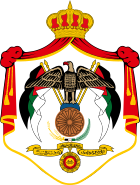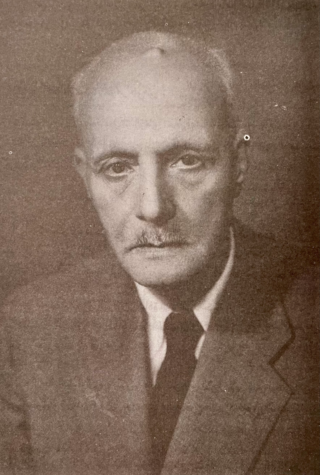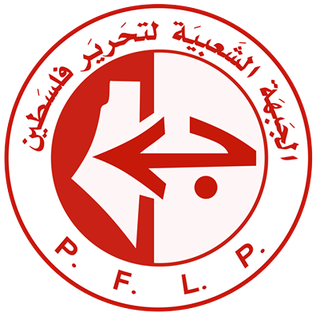 |
|---|
|
Early general elections were held in Transjordan on 10 June 1931, following the dissolution of the Legislative Council elected in 1929 after it failed to pass the budget annex. [1]
 |
|---|
|
Early general elections were held in Transjordan on 10 June 1931, following the dissolution of the Legislative Council elected in 1929 after it failed to pass the budget annex. [1]
The 1928 basic law provided for a unicameral Legislative Council. The 16 elected members were joined by the six-member cabinet, which included the Prime Minister. [1] The term length was set at three years. [1]
The sixteen elected members were:
Abdallah Sarraj formed a new government, which also included Tawfik Abu al-Huda, Odeh al-Qsous, Omar Hekmat, Shokri Sha'sha'ah and Adeeb al-Kayed. [1] On 18 October 1933 a new government was formed by Ibrahim Hashem, which included Odeh Al-Qsous, Sa`id al-Mufti, Shokri Sha'sha'ah, Hashem Khiar and Qasem Al-Hendawi. [1] The Council became the first to serve a full term, and lasted until 10 June 1934. [1]

Atassi is the name of a prominent family in Homs, Syria, of a noble lineage dating back to the 15th century AD. In modern times, members of the family led the national movement against the French mandate. The power and prestige of the family reached an apex at the formation of the modern Republic of Syria in 1936, when its second head of state, Hashim al-Atassi was elected president. Two out of the seven members of the constitutional assembly who drafted the first constitution of Syria in 1919 were prominent Atassis: Wasfi al-Atassi and Hashim al-Atassi. Two more scions, Lu'ay al-Atassi and Nureddin al-Atassi, were in turn installed as heads of state in the 1960s. Family members included magistrates, governors, ambassadors, heads of political parties, military officers and other public officials throughout Ottoman and modern times.
The Shia clergy are the religious leaders of Shia Islam. Shia Islam places great importance on the guidance of clergy, and each branch of Shi'ism maintains its own clerical structure. The most well-known Shia clergy belongs to the largest branch of Shia Islam, Twelver Shi'ism. As in other branches of Islam, Shia scholars are collectively known as the ulema. Individual clerics are referred to as mullah or ākhūnd, but because those terms have developed "a somewhat pejorative connotation" since at least the 1980s, the term rūḥānī has been "promoted" as an alternative, "especially by the clerical class itself".

Parliamentary elections were held in Egypt in three-stage elections in November and December 2005 to elect 444 of the 454 members of the People's Assembly. The elections formed the Eighth Assembly since the adoption of the 1971 Constitution. A total of 5267 candidates competed in 222 constituencies for the Assembly's 444 elected seats.

The Sudanese Communist Party is a communist party in Sudan. Founded in 1946, it was a major force in Sudanese politics in the early post-independence years, and was one of the two most influential communist parties in the Arab world, the other being the Iraqi Communist Party.

Said Ramadan was an Egyptian political activist, and one of the preeminent leaders of the Muslim Brotherhood.

Ibrahim Hashem was a Jordanian politician and judge, known primarily for serving five terms as Prime Minister of Jordan.

General elections were held in Transjordan on 2 April 1929, the first in the country's history.

General elections were held in Transjordan on 16 October 1934.

General elections were held in Transjordan on 16 October 1937.

General elections were held in Transjordan on 20 October 1942.

The Australian National Imams Council (ANIC) was formed in 2006 during a meeting of more than 80 Sunni imams which had gathered to discuss the crisis created by comments made by Taj El-Din Hilaly. In 2011, they requested that the Darulfatwa-supported Muslim Community Radio Incorporated not have its licence renewed due to ties with Al-Ahbash and because of its promotion of "sectarian fringe views".

The Popular Front for the Liberation of Palestine is a secular Palestinian Marxist–Leninist and revolutionary socialist organization founded in 1967 by George Habash. It has consistently been the second-largest of the groups forming the Palestine Liberation Organization (PLO), the largest being Fatah.

The Palestinian Unity Government of June 2014 was a national unity government of the Palestinian National Authority under Palestinian President Mahmoud Abbas formed on 2 June 2014 following the Fatah-Hamas Reconciliation Agreement that had been signed on 23 April 2014. The ministers were nominally independent, but overwhelmingly seen as loyal to President Abbas and his Fatah movement or to smaller leftist factions, none of whom were believed to have close ties to Hamas. However, the Unity Government was not approved by the Legislative Council, leading to its legitimacy being questioned. The Unity Government dissolved on 17 June 2015 after President Abbas said it was unable to operate in the Gaza Strip.
Ibrahim Abu Mohamed is an Egyptian-born and educated Sunni Islamic scholar and Grand Mufti of Australia from September 2011 to March 2018. He became Grand Mufti again after Afifi's death.
Events from the year 1955 in Jordan.
The Grand Mufti of Australia is a Sunni Muslim cleric, or Grand Mufti, chosen to represent and answer questions from the growing Muslim population. Nominated by the Australian National Imams Council (ANIC), the current Grand Mufti of Australia since 2018 is Ibrahim Abu Mohammed. Mohammed previously held the position from 2011–2018, and became Grand Mufti again after his successor, Abdel Aziem Al-Afifi died in office after a four-month tenure.

The 1969 Sudanese coup d'état was a successful coup, led by Colonel Gaafar Nimeiry, against the government of President Ismail al-Azhari. The coup signaled the end of Sudan's second democratic era, and saw the beginning of Nimeiry's 16 year rule.

Abu Ibrahim al-Hashimi al-Qurashi was an Iraqi militant and the second caliph of the Islamic State. His appointment by a shura council was announced by the Islamic State media on 31 October 2019, less than a week after the death of previous leader Abu Bakr al-Baghdadi.

The Ministry of Finance is a Jordan government ministry responsible for public finances of the Hashemite Kingdom of Jordan in co-operation with the Central Bank of Jordan.